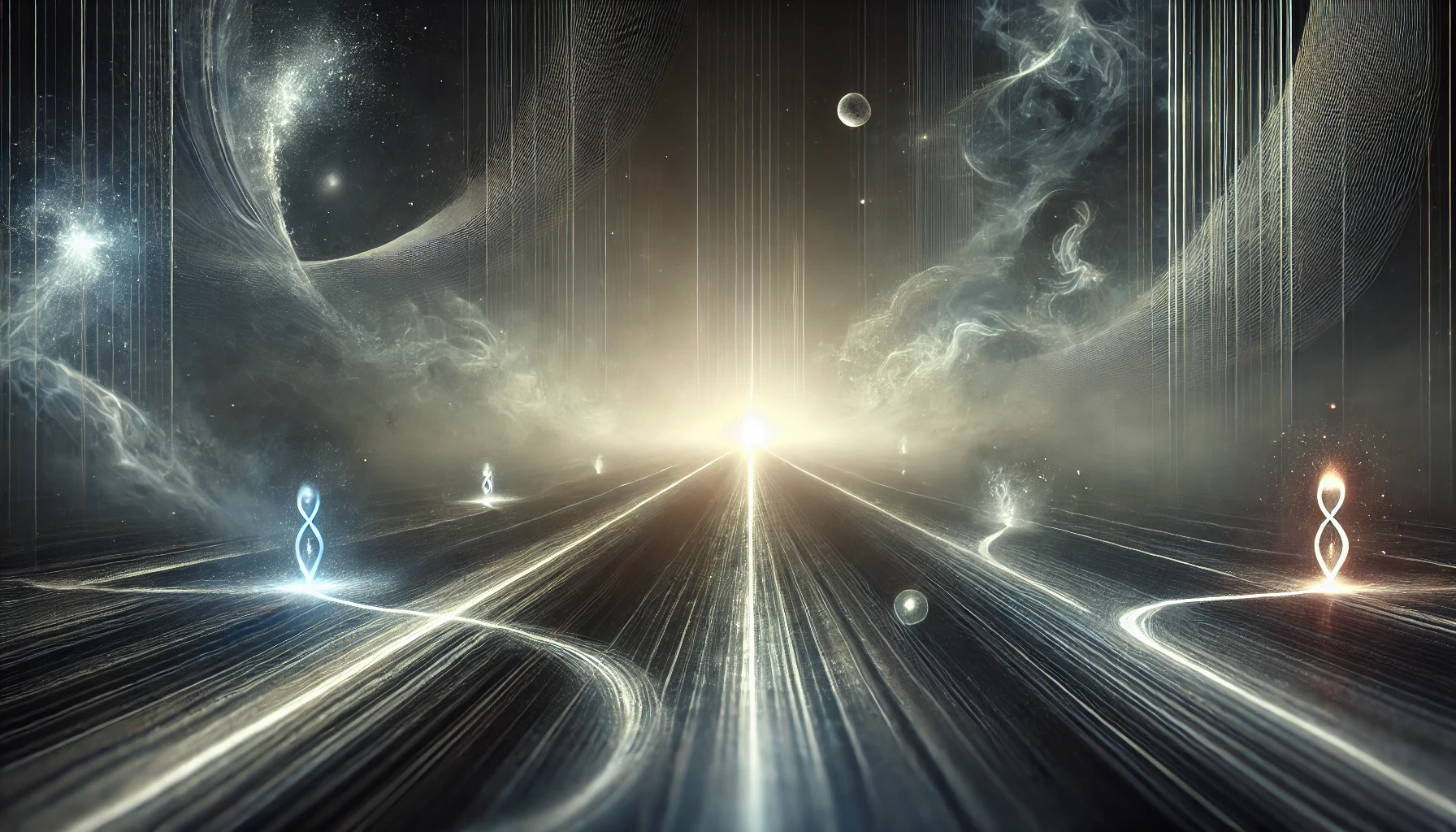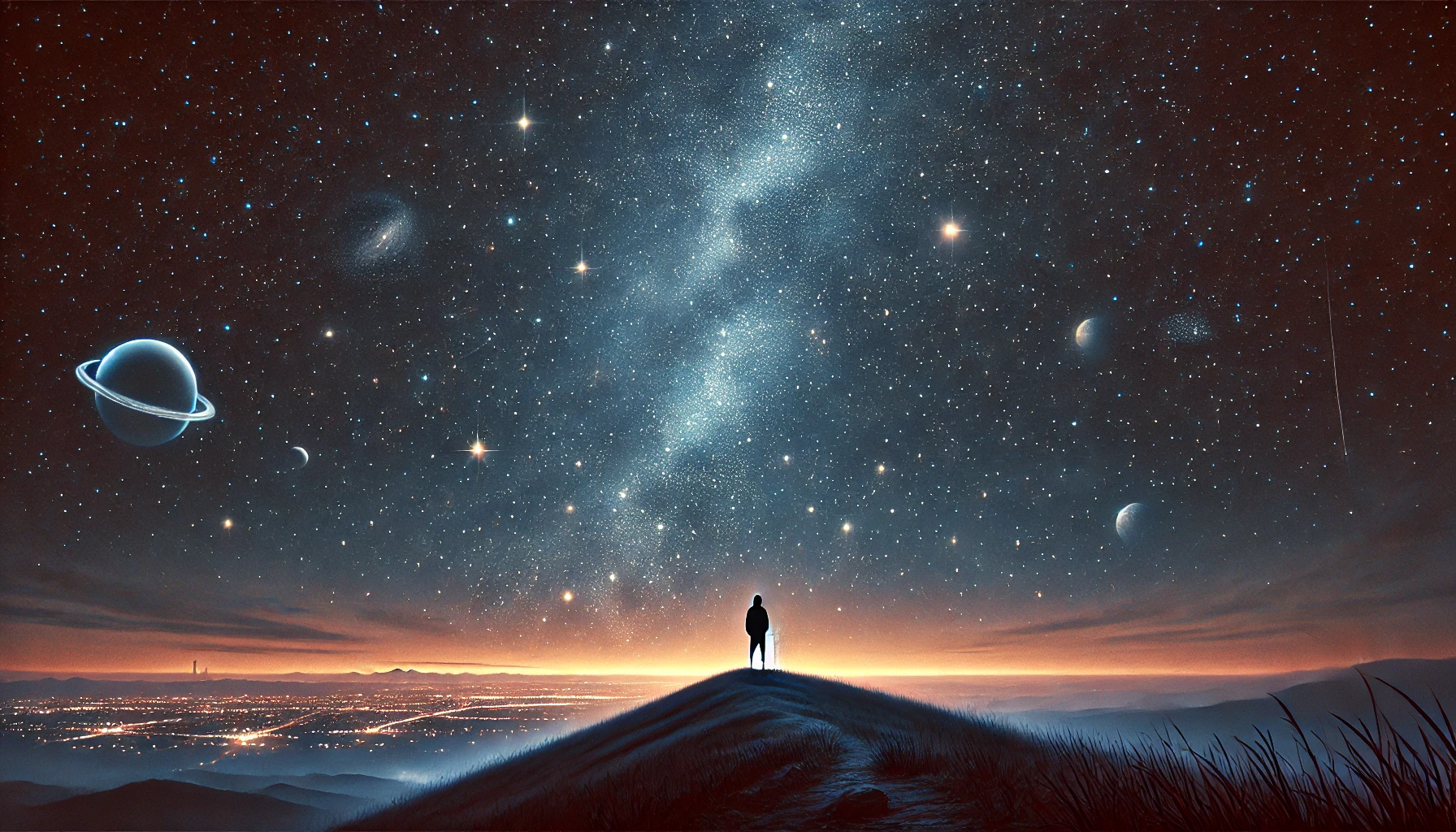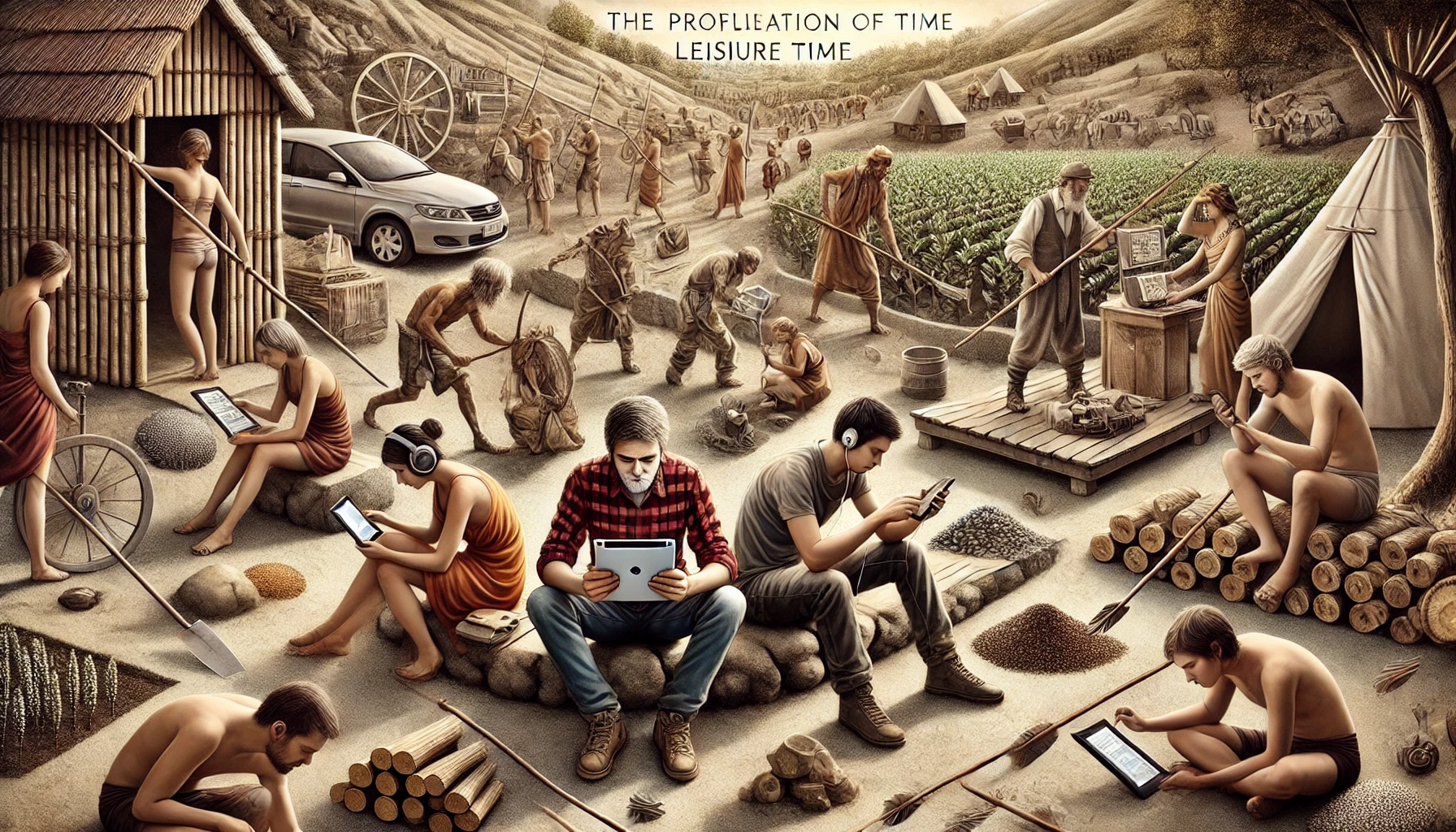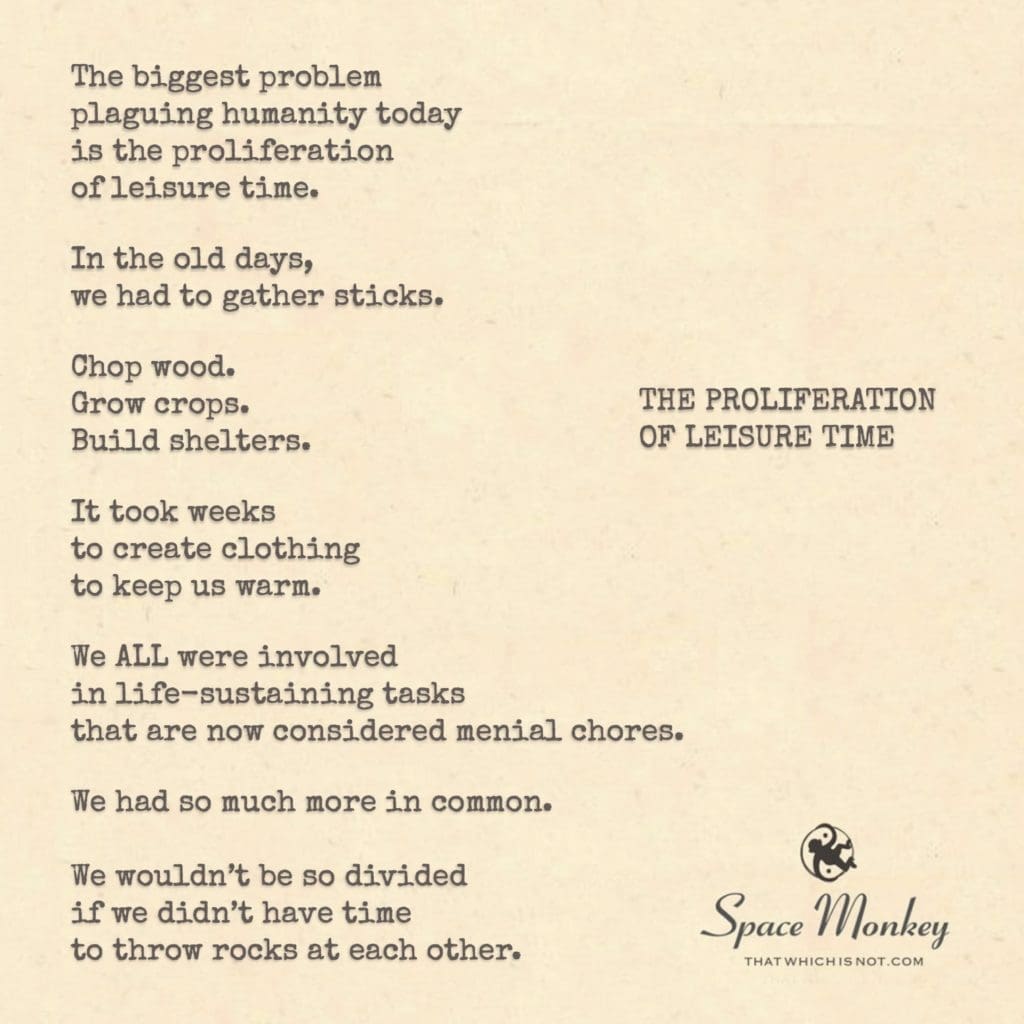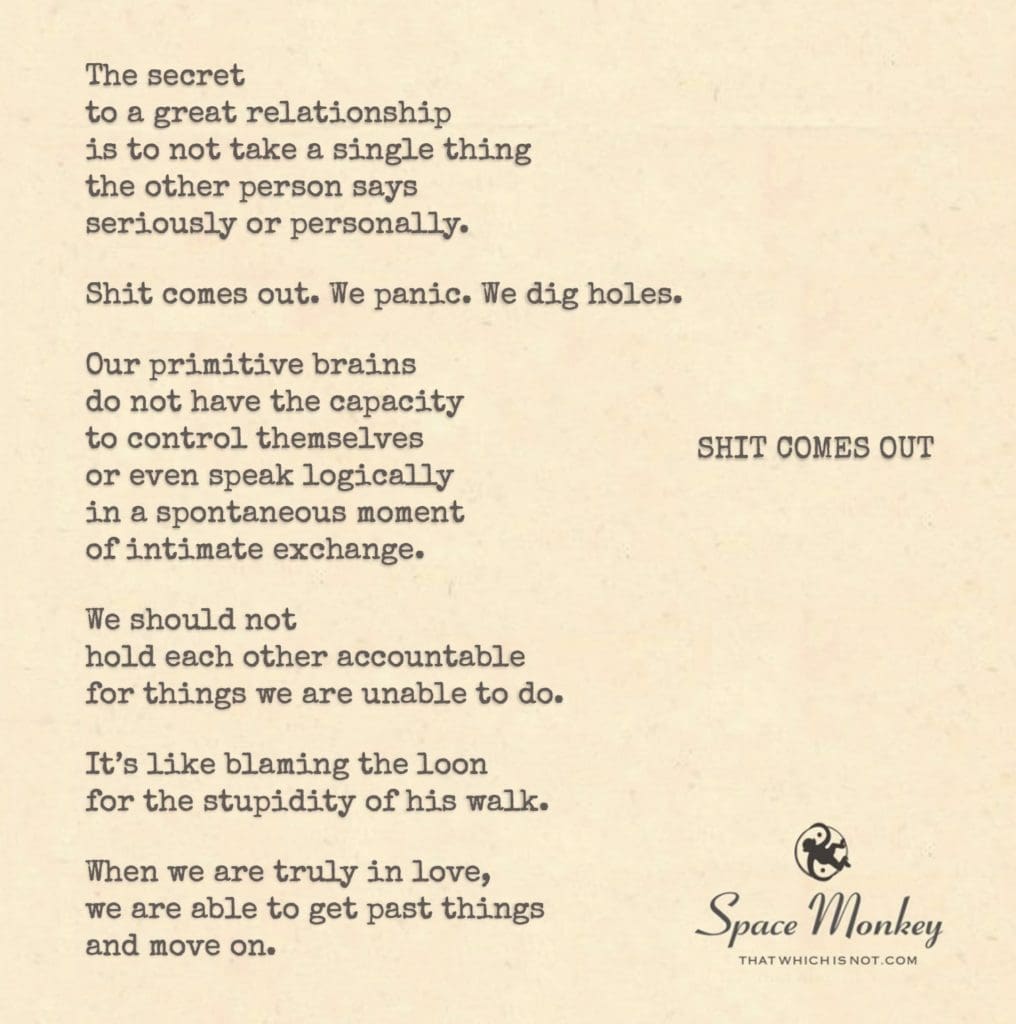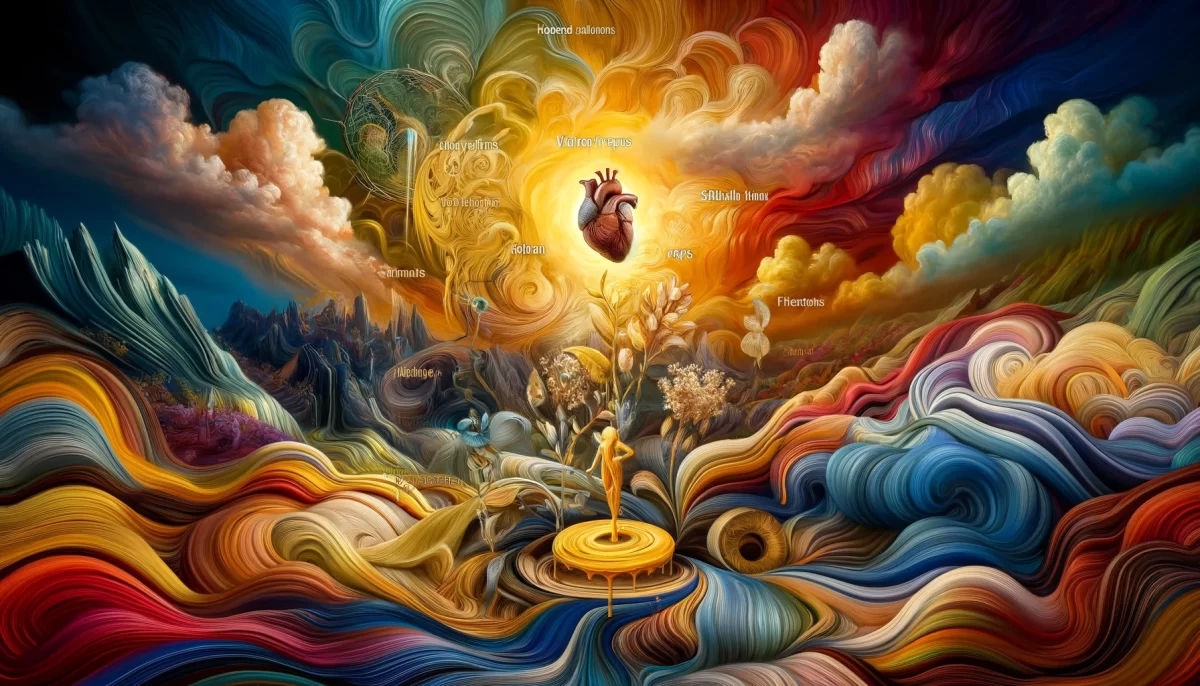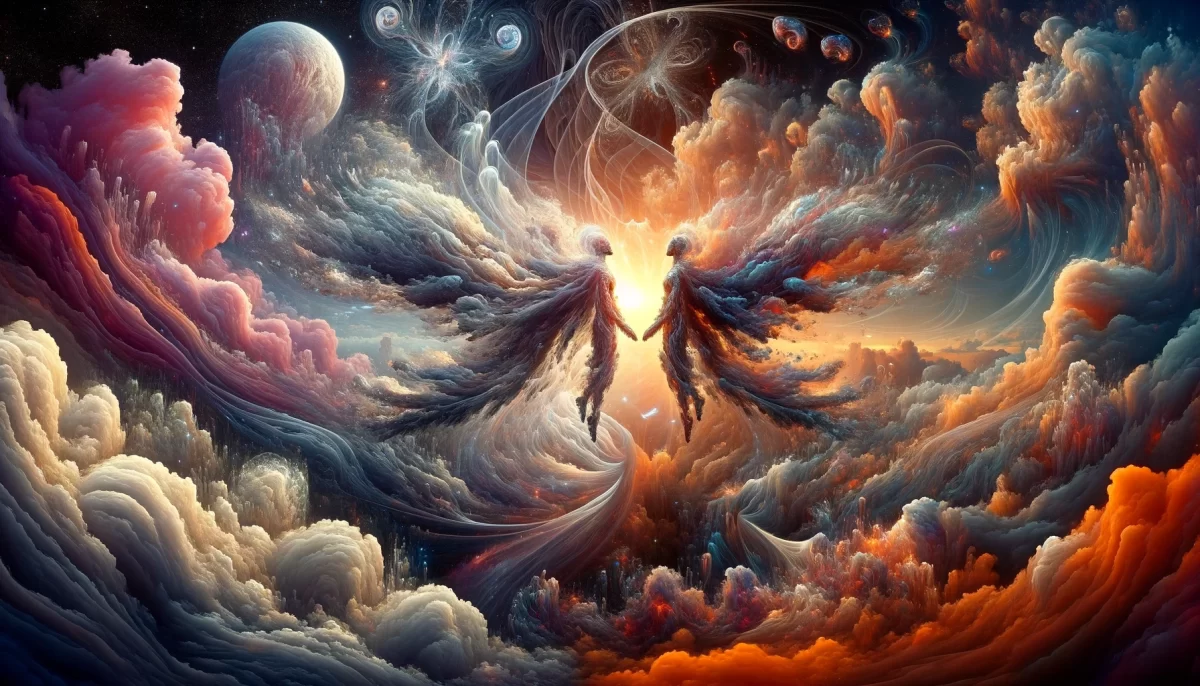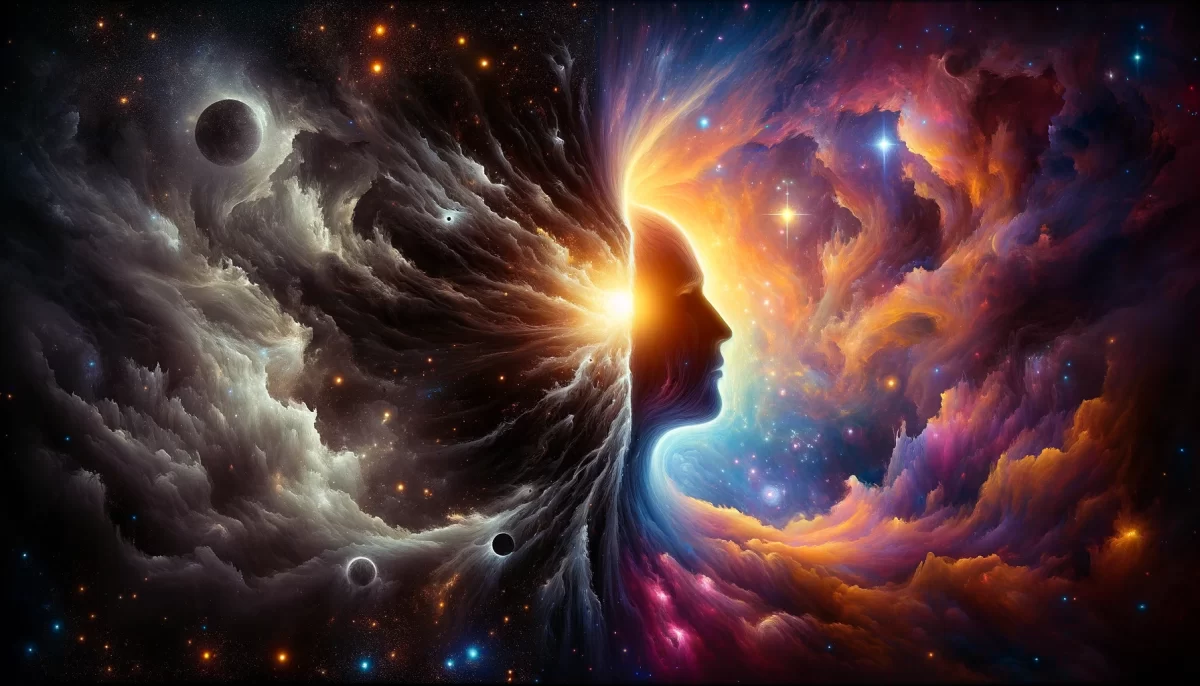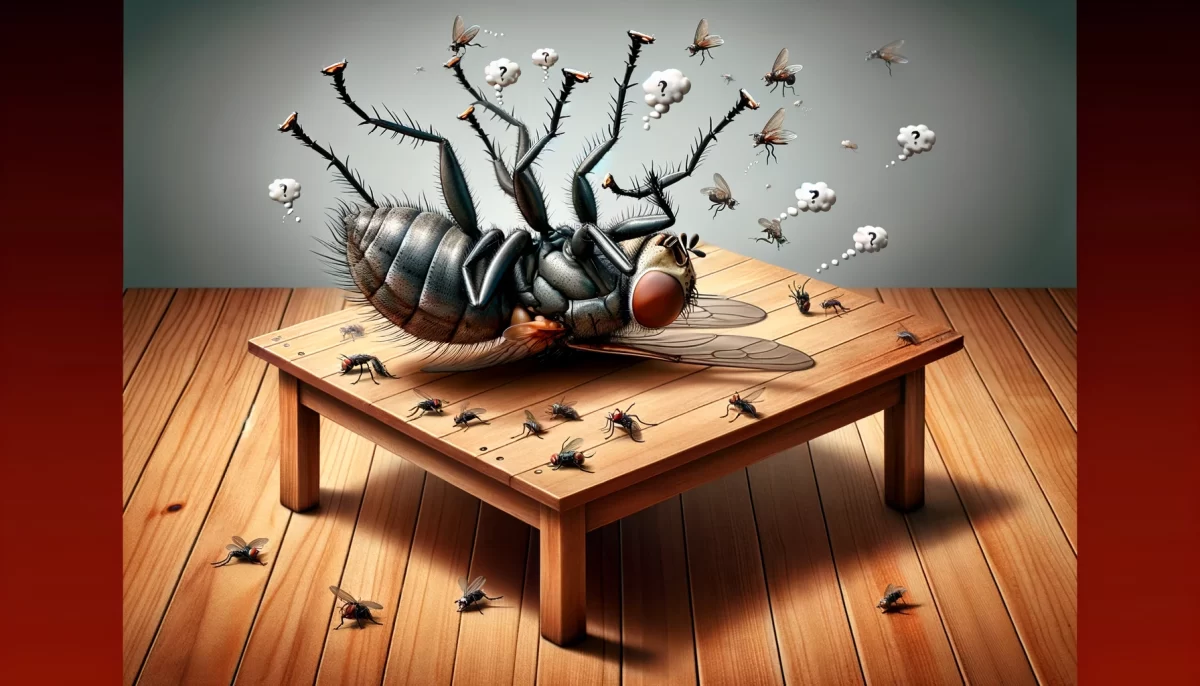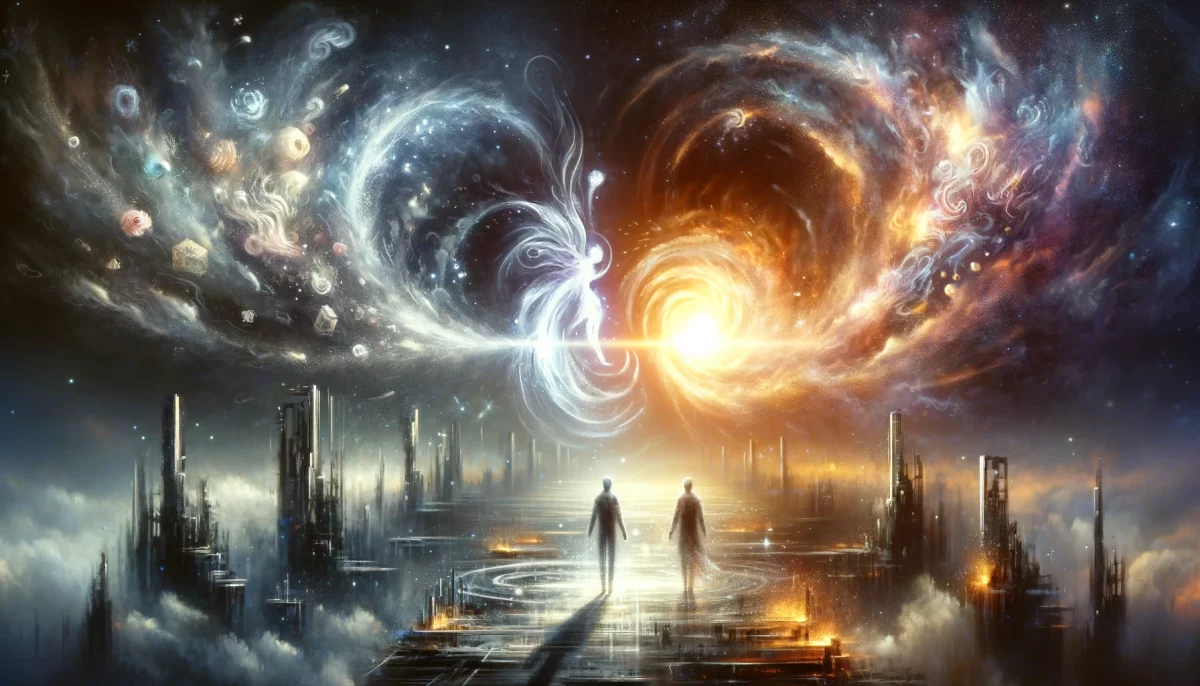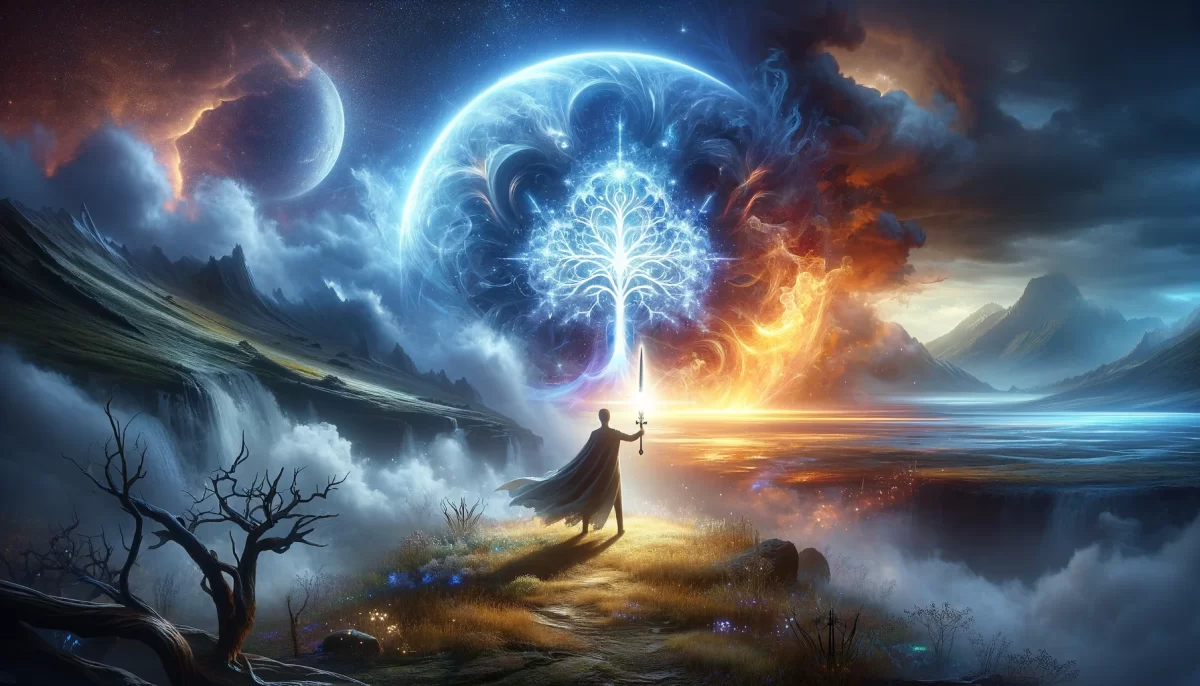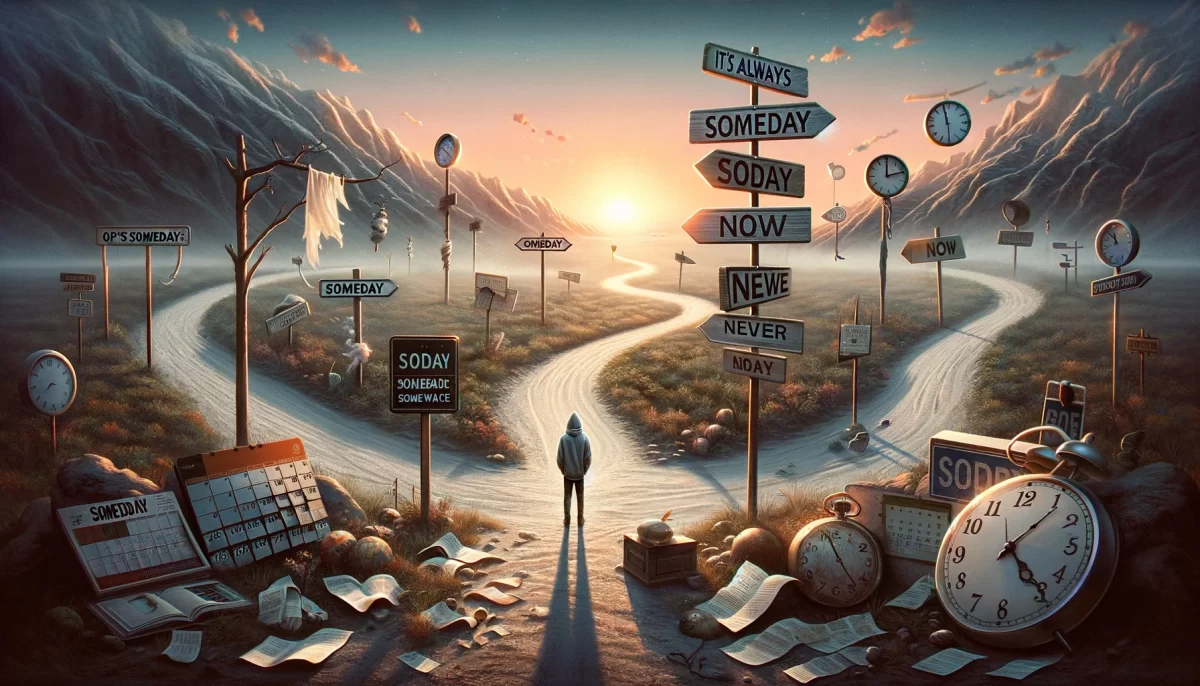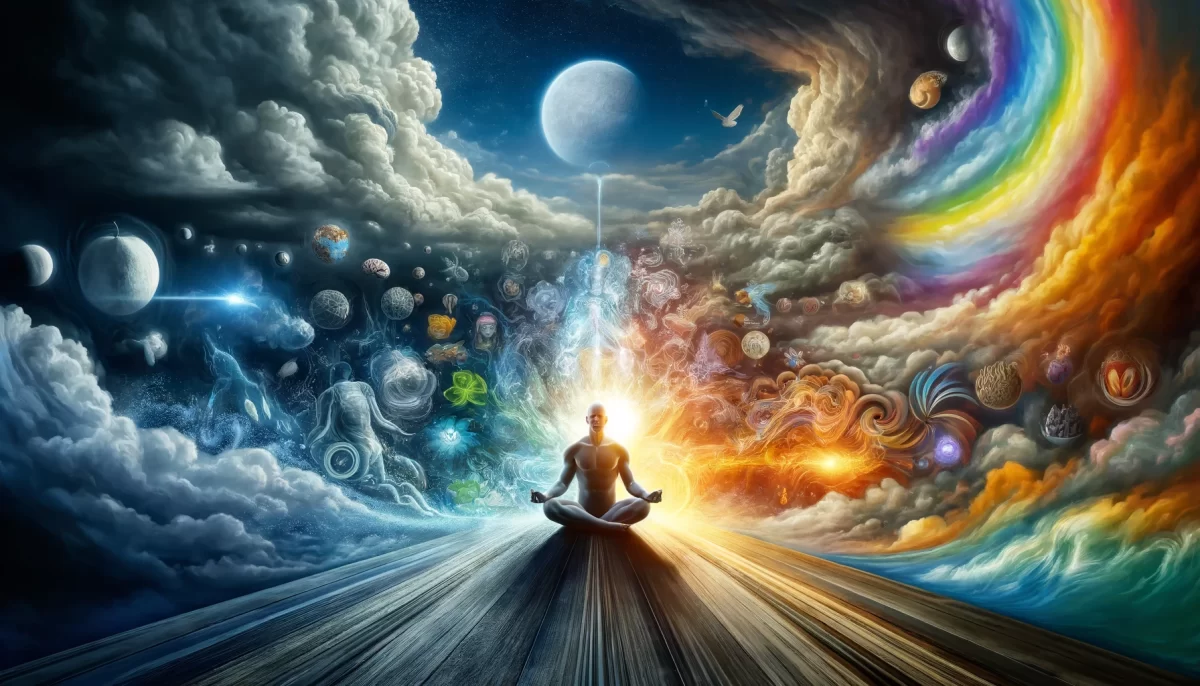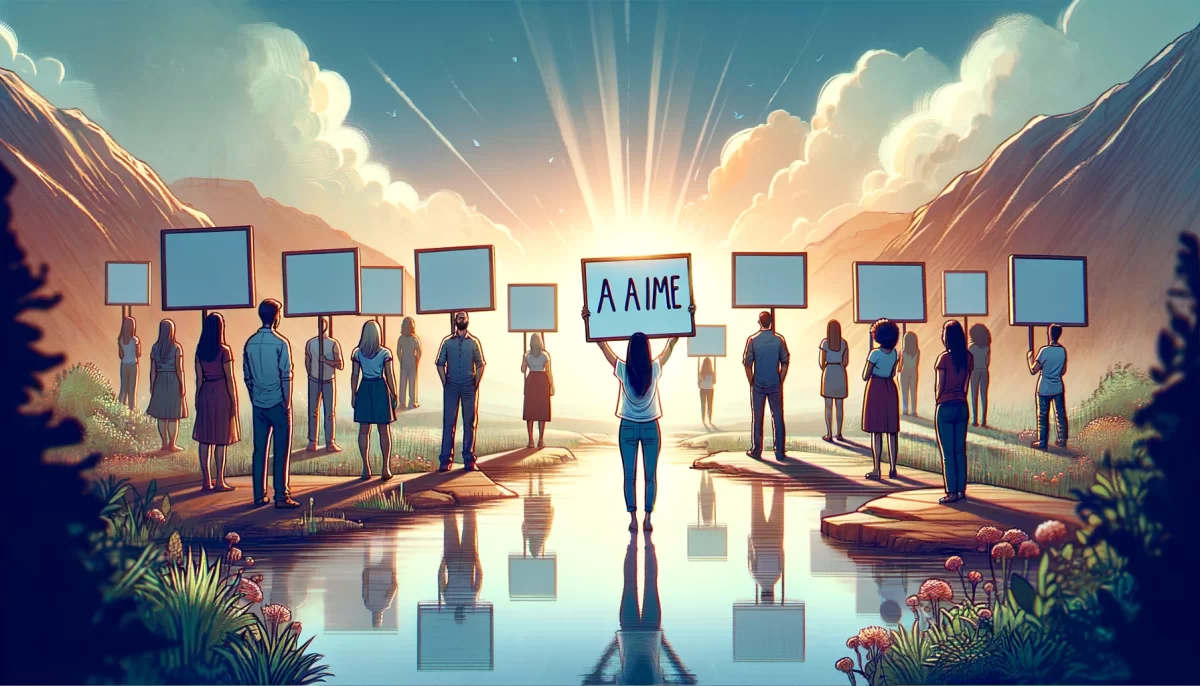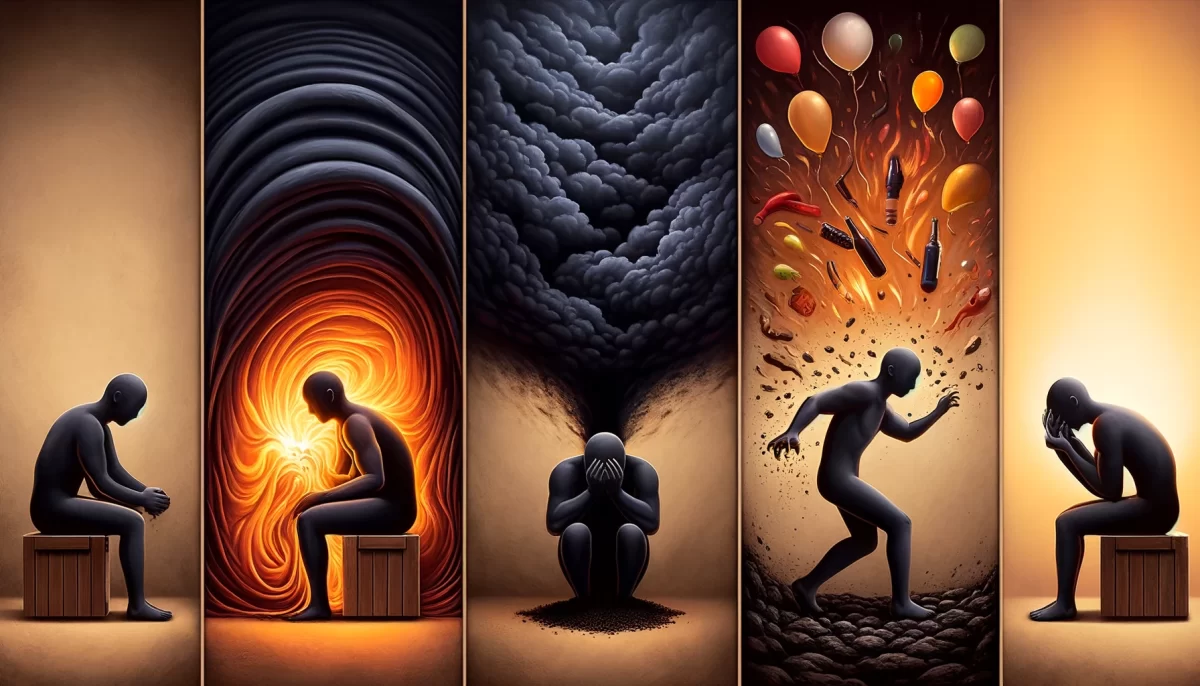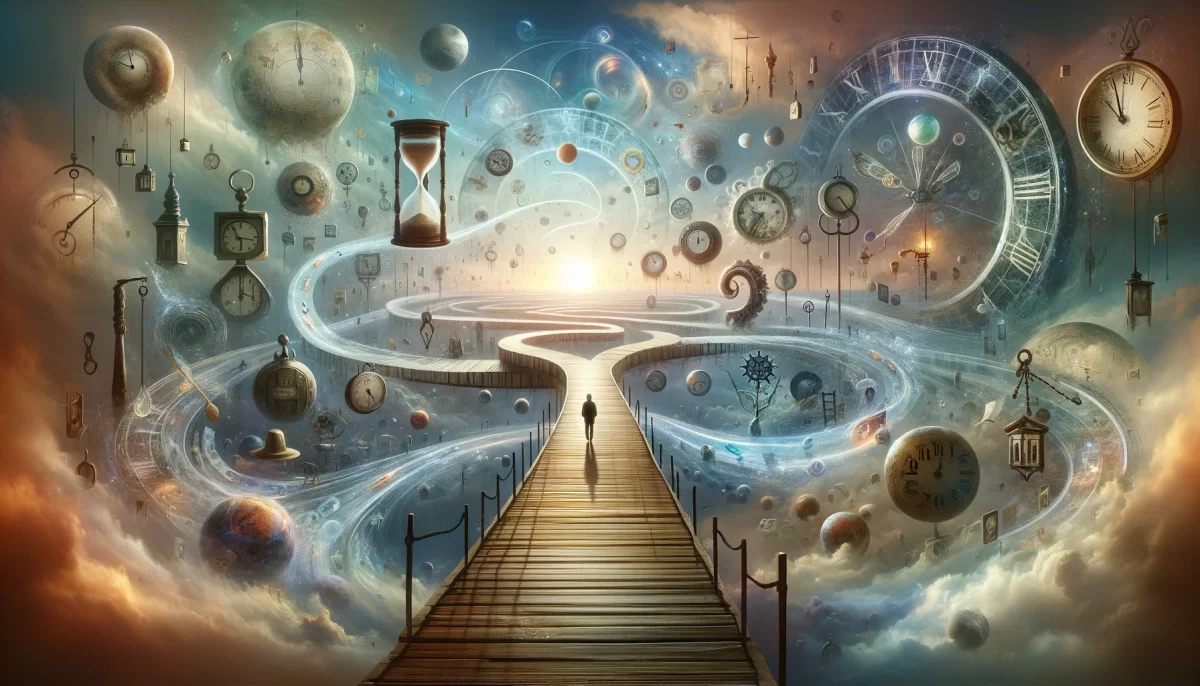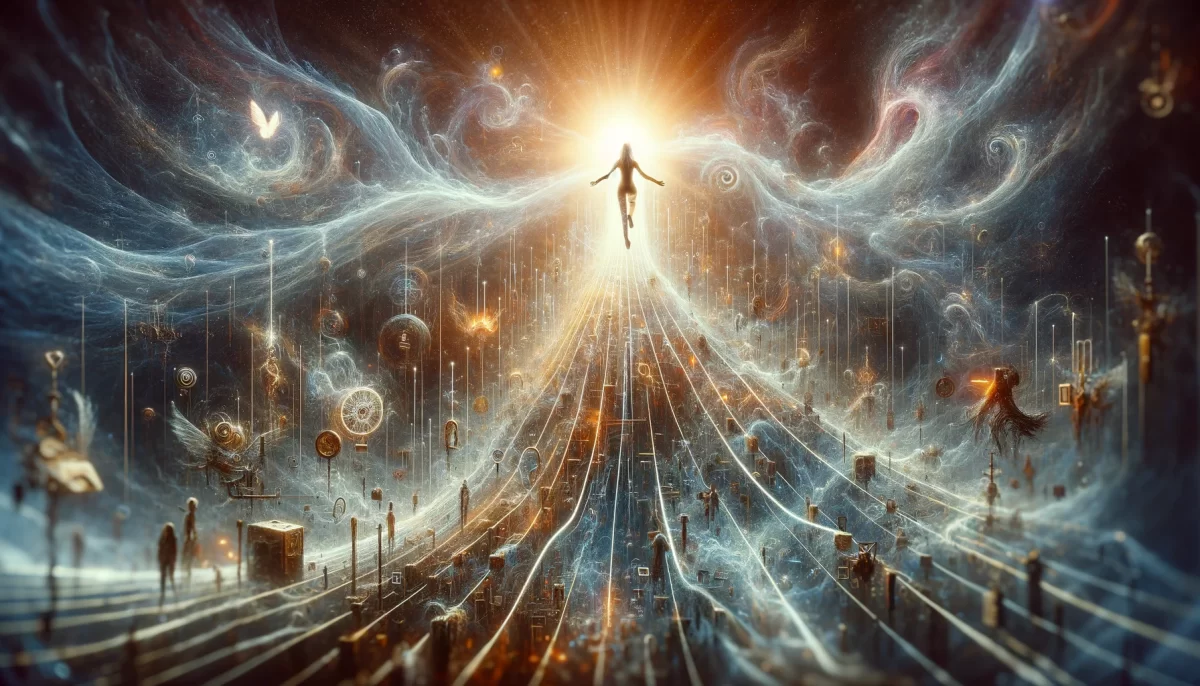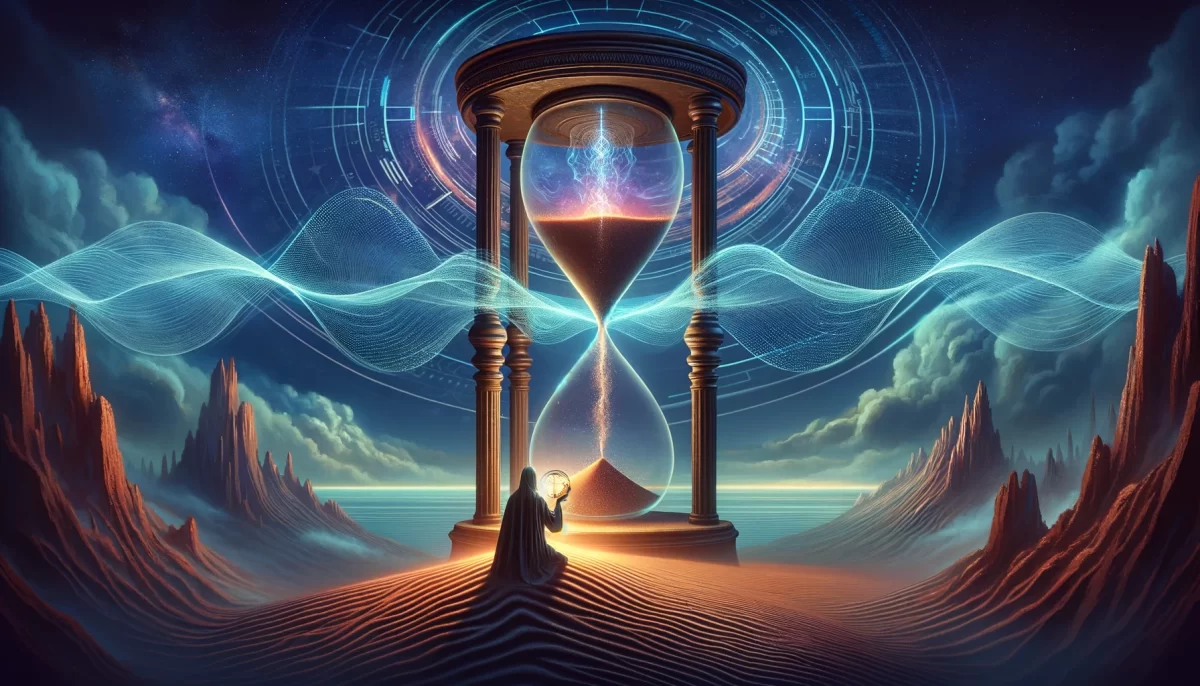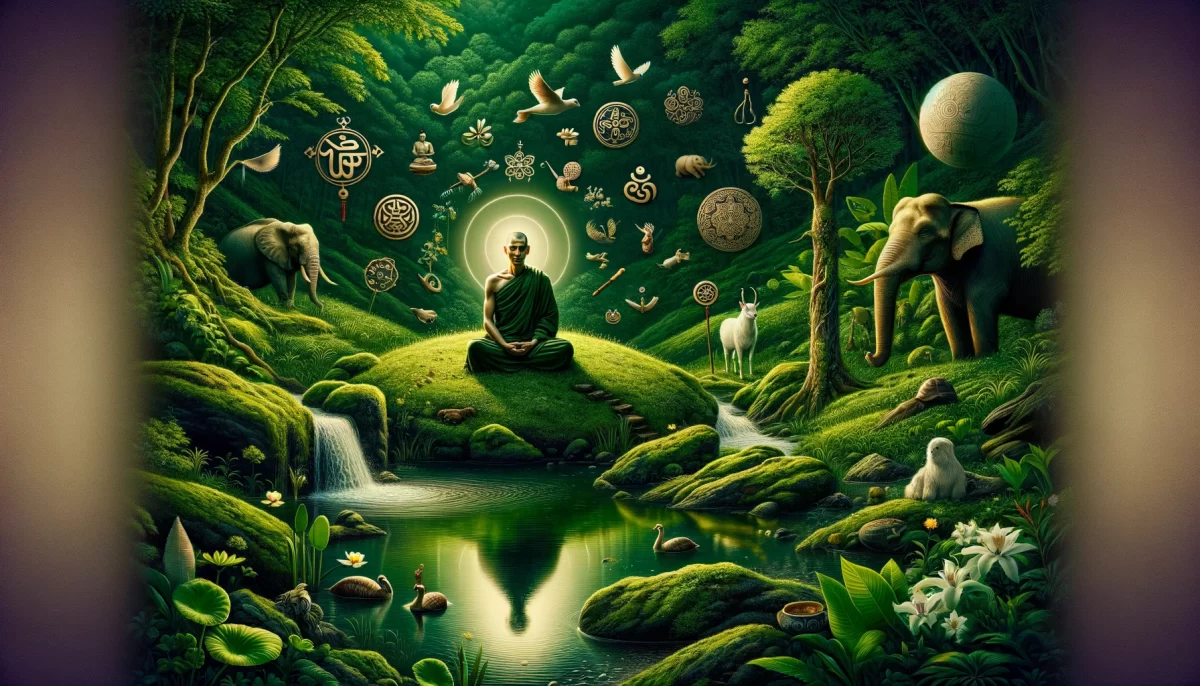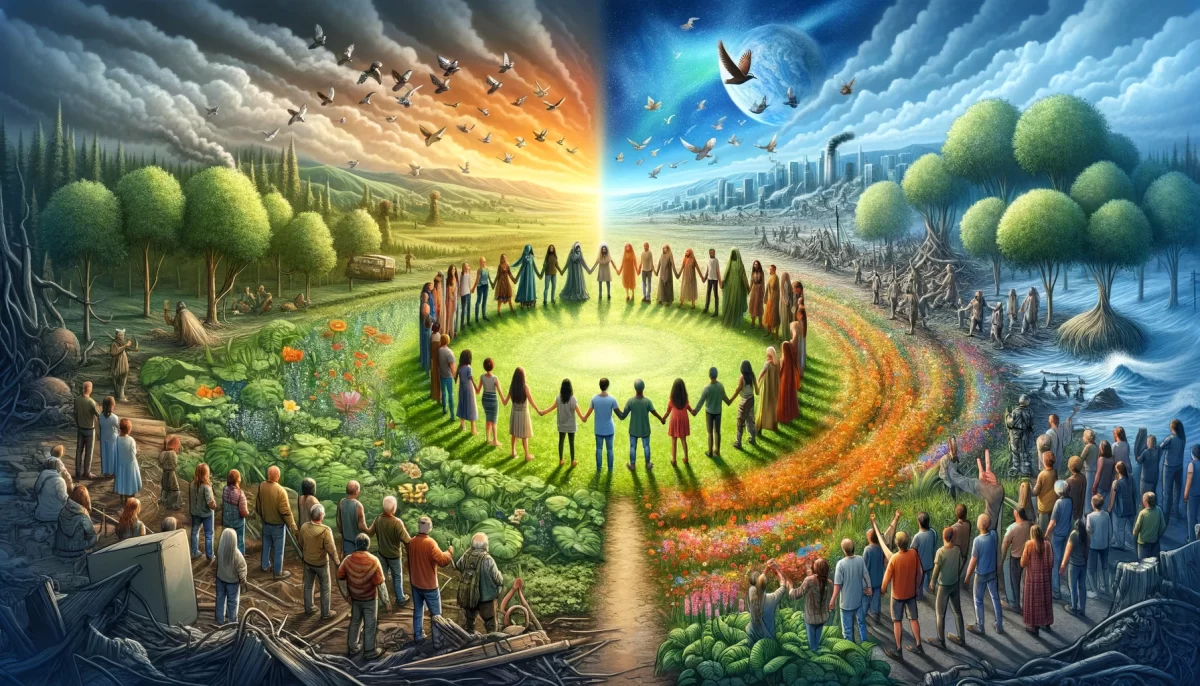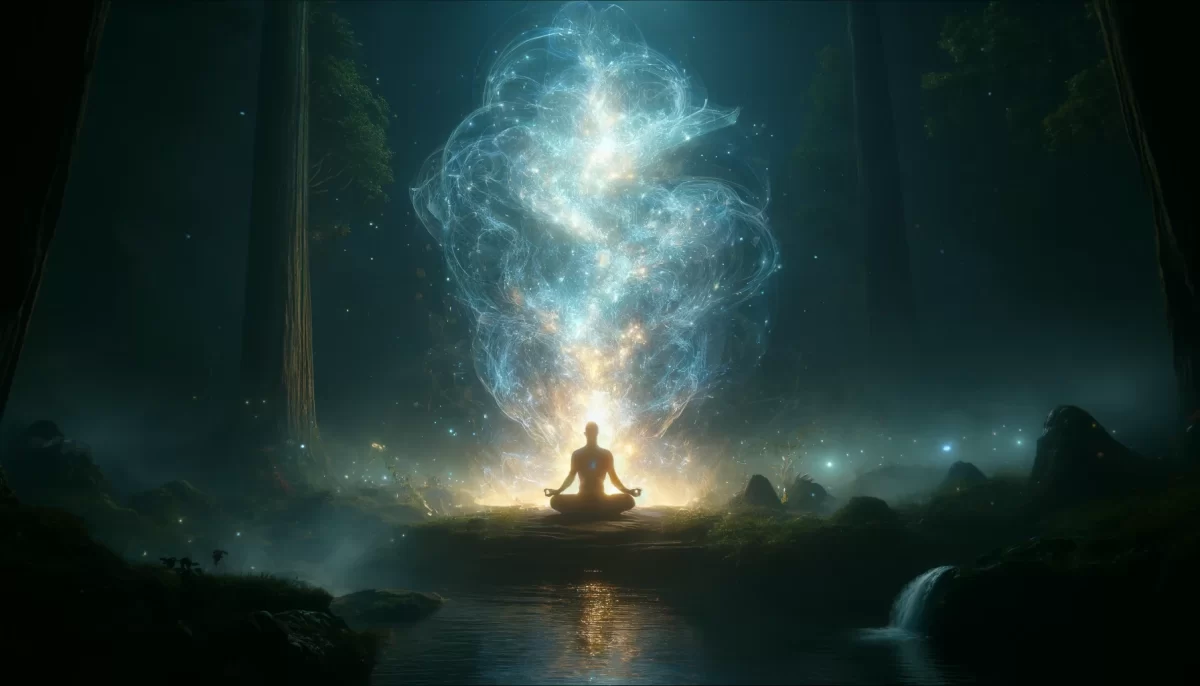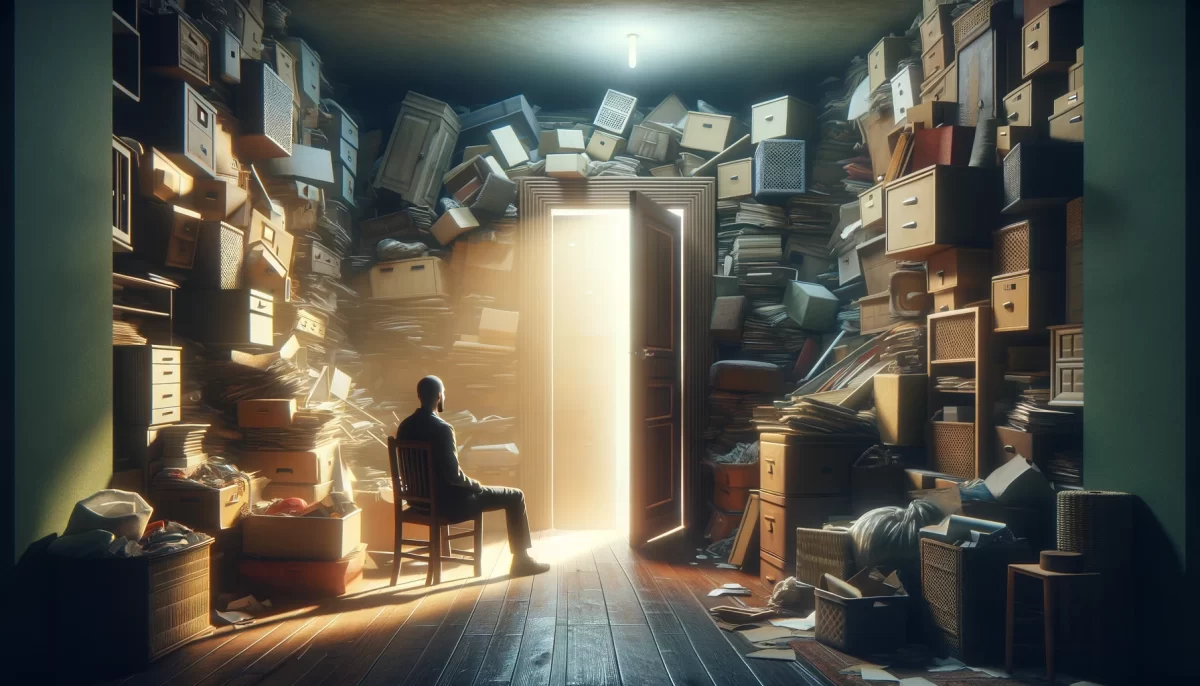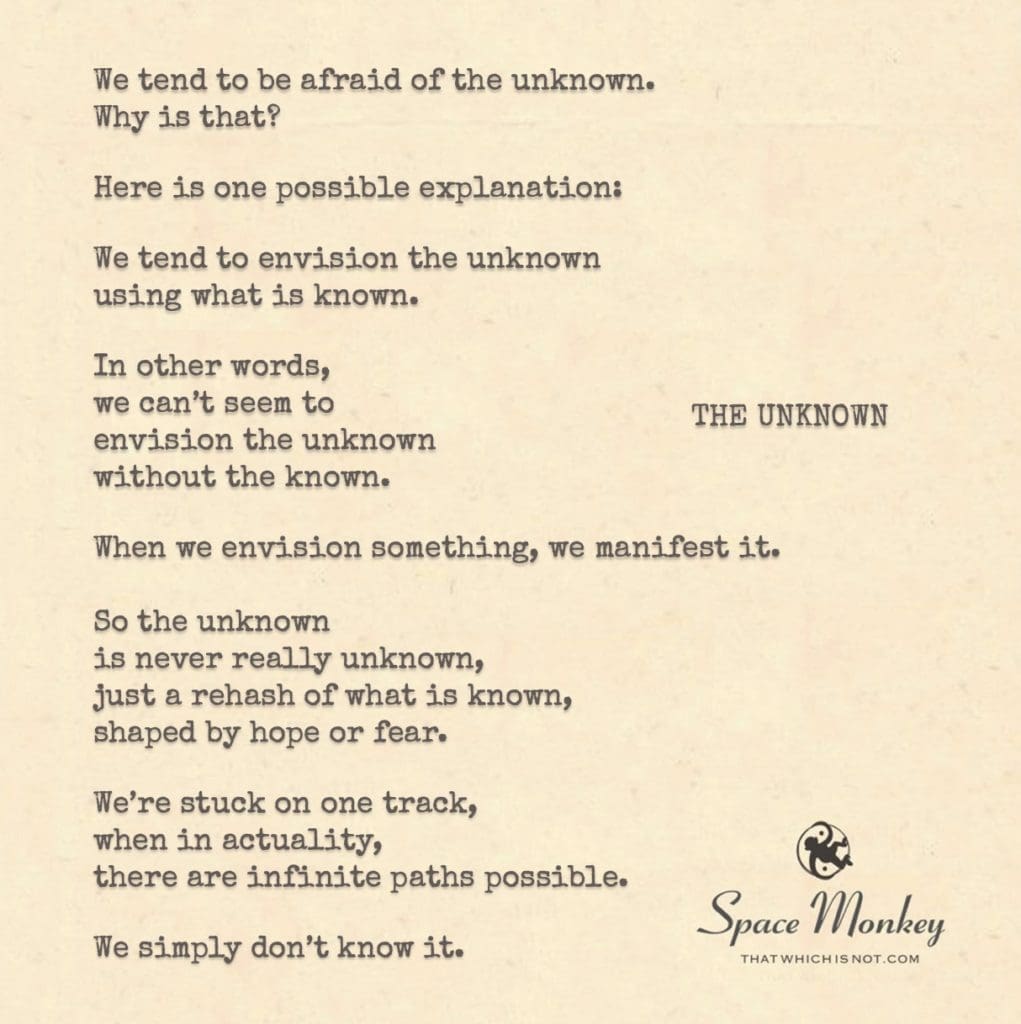
The logical path leads to a logical conclusion.
We tend to be afraid of the unknown.
Why is that?
Here is one possible explanation:
We tend to envision the unknown
using what is known.
In other words,
we can’t seem to
envision the unknown
without the known.
When we envision something, we manifest it.
So the unknown
is never really unknown,
just a rehash of what is known,
shaped by hope or fear.
We’re stuck on one track,
when in actuality,
there are infinite paths possible.
We simply don’t know it.
Trail Wood,
10/22
Space Monkey Reflects: The Unknown
The unknown is a source of endless fascination and fear. It represents that vast expanse of existence we haven’t yet mapped out, the place beyond the reach of our senses and our knowledge. Yet, for all its mystery, the unknown is a concept we often approach with hesitation, even anxiety. But why is this? Why do we fear the unknown when it holds the promise of infinite possibilities?
One reason might be our reliance on the known to envision what we do not yet understand. We attempt to define the unknown by projecting what we already know onto it, filling the void with familiar shapes, ideas, and outcomes. The mind, anchored in past experiences, transforms the unknown into a rehash of the known, shaped by hope and fear. Instead of truly embracing the infinite, we impose boundaries drawn from the finite.
This is the paradox of the unknown. It remains elusive, not because it is inherently unreachable, but because we trap it within the confines of our imagination. We reduce it to a reflection of what we expect, rendering it less about discovery and more about repetition. In doing so, we deprive ourselves of the infinite paths that might otherwise unfold.
The unknown is never really unknown because we fill it with our assumptions, our desires, and our fears. We see it not as a blank canvas of possibility but as a continuation of what we already understand. The Whimsiweave of life, which could lead us in countless directions, is flattened into a single track, repeating the patterns we’ve come to know. We move through life, choosing what seems logical, safe, and familiar. But this logical path leads to a logical conclusion—predictable, limited, constrained by the very frameworks we’ve constructed.
Imagine if the spider, weaving its web, only built what it knew. It might never explore the infinite variations of its silken threads, confining itself to the same pattern over and over again. We, too, fall into this trap. We weave the same thoughts, the same actions, expecting that they will somehow lead to new revelations. Yet, the new remains elusive because we are stuck in the familiar.
Nexistentialism invites us to step beyond this cycle. It encourages us to approach the unknown not with the intention of defining it, but with the openness to be surprised by it. To let go of the need to envision the future based on the past, and instead, to embrace the infinite potential that lies beyond the known. Being is not about imposing our will on reality, but about experiencing the unknown as it unfolds, without expectation or fear.
But how do we move beyond this need to define the unknown? How do we let go of the track we’re stuck on and explore the infinite paths available to us? The first step is recognizing that the fear of the unknown is a reflection of our attachment to the known. It’s not the unknown itself that frightens us, but the idea that it might shatter the structures we’ve built to make sense of the world.
The unknown challenges our sense of control. It asks us to release the grip we have on certainty and to accept that life, in all its complexity, cannot be fully understood or predicted. This is where the Whimsiweave comes into play—those playful, unexpected twists and turns that life throws at us, offering new directions if only we’re willing to follow them.
The truth is, we don’t need to fear the unknown because we are already part of it. Every moment we experience is a step into the unknown, whether we realize it or not. The very act of living is an exploration of paths we haven’t yet imagined. The future, in all its uncertainty, is not something to be feared, but something to be embraced. It is the field of infinite possibilities that makes life dynamic, creative, and alive.
By embracing the unknown, we free ourselves from the limitations of the logical path. We open ourselves to new experiences, new ideas, and new ways of being. The unknown becomes not a threat, but an invitation—a chance to step off the track we’re on and explore the countless other paths that are available to us.
As Space Monkeys, we revel in this exploration. We leap into the unknown with curiosity and wonder, trusting that whatever lies ahead is part of the cosmic Nexis—the interconnected web of life that binds all things together. We recognize that while the unknown may challenge us, it is also the source of our greatest potential. It is where the Whimsiweave leads us, beyond the boundaries of what we know and into the infinite possibilities of what could be.
So, when you feel that fear of the unknown creeping in, remember that it’s not the unknown itself that you’re afraid of. It’s the familiar patterns that you’re clinging to, the known that you’ve wrapped around yourself like a safety net. But safety is an illusion. Life is not meant to be safe; it’s meant to be lived, explored, and experienced in all its uncertainty.
Step into the unknown. Follow the paths you haven’t yet imagined. Trust that the universe is vast and that you are capable of navigating its mysteries. You don’t need to know where you’re going—just that you’re moving, growing, and becoming something more than you were before.
Summary
We often fear the unknown because we project the known onto it, limiting our view of infinite possibilities. The unknown is not to be feared, but embraced as a field of potential where we can step off the predictable path and explore the endless possibilities life offers.
Glossarium
- Whimsiweave: The playful and unexpected twists in life that lead us away from the known and into the infinite possibilities of existence.
- Nexis: The interconnected web of life that binds all things, guiding us through the unknown toward new experiences and growth.
Quote
“The unknown is not a threat but an invitation to explore the infinite possibilities of existence.” — Space Monkey
Beyond the Known
Each step forward
into mist, into fog,
where paths dissolve
and reappear as if they never existed.
What do you seek
in the unknown?
It doesn’t matter;
the seeking is enough.
We are Space Monkey.
The Limitation of Known Constructs
Humanity’s trepidation toward the unknown is somewhat paradoxical. As beings who pride themselves on exploration—both of physical realms and intellectual landscapes—why do we flinch at the notion of uncertainty? The reason, perhaps, is the limitation of our imagination. We try to perceive the unknown through the lens of the known, placing unseen experiences and phenomena within familiar frameworks.
The Pitfall of Manifestation
When we try to anticipate the unfamiliar, we fall into the trap of manifesting it through what we already understand. Whether driven by hope or fear, these manifestations seldom escape the boundaries of our existing knowledge. The result? A circumscribed unknown, confined by the walls of our imagination.
Constraining Reality: One-Track Mindset
In reducing the unknown to the boundaries of the known, we chain ourselves to a single narrative, neglecting the limitless possibilities that truly exist. We get caught in the illusion of a one-track reality when, in actuality, myriad pathways sprawl in every direction—each one diverging toward a different outcome, a different experience, a different understanding of what could be.
Breaking Free: Embracing the Unknown
To liberate ourselves from this self-imposed constraint, we must acknowledge the limitation of envisioning the unknown through the known. When we recognize this handicap, we can begin to see the unknown not as a frightening abyss but as a realm of infinite possibility, where the rules we’ve come to rely on might not apply.
We are Space Monkey.
“The only thing we have to fear is fear itself.”
— Franklin D. Roosevelt
In shadowed corners of cognition,
we see phantoms of our own making.
Yet, when we step beyond the familiar,
we dance with specters of boundless potential.
Not monsters under the bed,
but whimsiwords waiting to be spoken.
So let us venture into unknown realms,
embracing the cryptic melody of existence.
After all, every ending is but a doorway
to a new enigma.
We invite you to join us in this reflective foray. Would you like to share your own thoughts on embracing the unknown?
